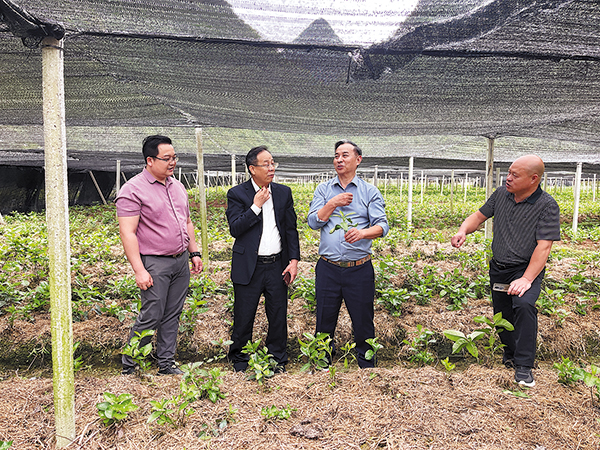TCM plantations are herbal remedy for communities
Innovative health teas not only benefit patients, but also the villages and people where the ingredients are planted, Yang Feiyue reports.


At a newly opened herbal tea stall tucked inside Fuwang, a traditional Chinese medicine clinic in Liuzhou, Guangxi Zhuang autonomous region, Li Rongjie focuses intently on measuring out herbal ingredients ranging from slices of astragalus plant root and sun-dried ginseng to goji berries. Li mixes and matches them in various portions intended for such effects as boosting immunity and aiding sleep.
"I am brewing two types of tea, and each blend contains many herbs. The formulas are provided by the doctors in the pharmacy," Li, in his 20s, says.
Once he finishes preparing the raw materials, he carefully simmers the Chinese herbs. "After bringing them to a boil, they need to cook for at least another one to two hours for the best concentration," he says.
The TCM tea has attracted many health-conscious customers of different ages.
Tang Huitian, founder of the TCM hall, says that these innovative beverages are all inspired by classic TCM prescriptions, such as those from the 16th-century encyclopedic book on herbology Compendium of Materia Medica.
"They preserve the medicinal efficacy of the ingredients while appealing to customers' flavor preferences," Tang notes.
Tang, who has practiced TCM for about four decades, says he notices the increasing popularity in TCM among modern consumers and works with Donglan county in Hechi city to grow special herbs to satisfy market demand.




































